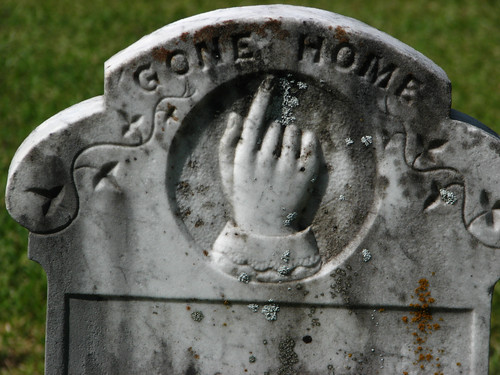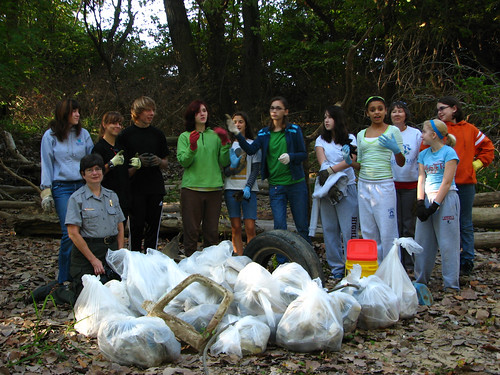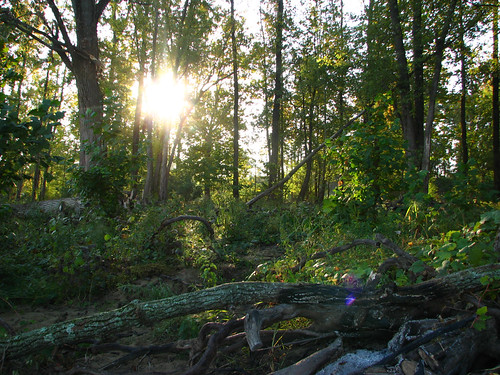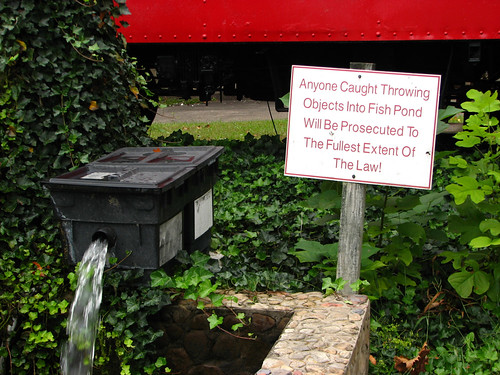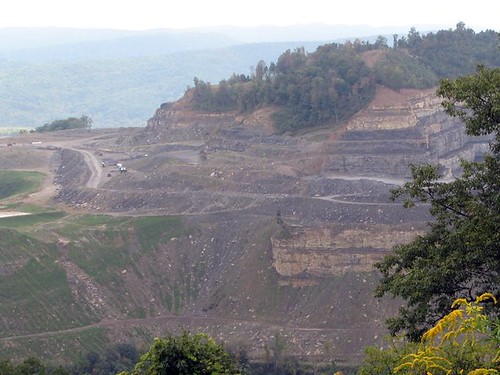Because they rob the weak, and the needy groan, I will now arise," says the LORD; "I will grant safety to whoever longs for it...
They would crush the hopes of the poor, but the poor have the LORD as their refuge...
LORD, who may abide in your tent? Who may dwell on your holy mountain?
Whoever walks without blame, doing what is right, speaking truth from the heart; Who does not slander a neighbor, does no harm to another, never defames a friend; Who keeps an oath despite the cost, lends no money at interest, accepts no bribe against the innocent...
Arrogant scoundrels pursue the poor; they trap them by their cunning schemes.
The wicked even boast of their greed; these robbers curse and scorn the LORD...
They wait in ambush near towns; their eyes watch for the helpless. to murder the innocent in secret.
They lurk in ambush like lions in a thicket, hide there to trap the poor, snare them and close the net.
The helpless are crushed, laid low; they fall into the power of the wicked...
Rise up, LORD God! Raise your arm! Do not forget the poor!
You listen, LORD, to the needs of the poor; you encourage them and hear their prayers.
For the rich men of the city are full of violence,
Her residents speak lies,
And their tongue is deceitful in their mouth…
Hear this, you who trample the needy, to do away with the humble of the land, saying,
“When will the new moon be over,
So that we may sell grain,
And the sabbath, that we may open the wheat market,
To make the bushel smaller and the shekel bigger,
And to cheat with dishonest scales,
So as to buy the helpless for money
And the needy for a pair of sandals,
And that we may sell the refuse of the wheat?”...
You win justice for the orphaned and oppressed; no one on earth will cause terror again.
Listen, my beloved brothers. Did not God choose those who are poor in the world to be rich in faith and heirs of the kingdom that he promised to those who love him? But you dishonored the poor person. Are not the rich oppressing you? And do they themselves not haul you off to court? Is it not they who blaspheme the noble name that was invoked over you?...
Come now, you rich, weep and wail over your impending miseries. Your wealth has rotted away, your clothes have become moth-eaten, your gold and silver have corroded, and that corrosion will be a testimony against you; it will devour your flesh like a fire. You have stored up treasure for the last days.
Behold, the wages you withheld from the workers who harvested your fields are crying aloud, and the cries of the harvesters have reached the ears of the Lord of hosts.
You have lived on earth in luxury and pleasure; you have fattened your hearts for the day of slaughter. You have condemned; you have murdered the righteous one; he offers you no resistance...
God has brought down rulers from their thrones,
And has exalted those who were humble.
GOD HAS FILLED THE HUNGRY WITH GOOD THINGS;
And sent away the rich empty-handed...
Woe to you who are rich...
"Sell your belongings and give alms. Provide money bags for yourselves that do not wear out, an inexhaustible treasure in heaven that no thief can reach nor moth destroy.
"For where your treasure is, there also will your heart be."
Saturday, October 29, 2011
Protesting Wall Street?
Sunday, October 23, 2011
The Bible and Economics
Part of an ongoing series looking at all the many passages in the Bible that deal with wealth and poverty issues. You can see the links to the other passages in the series under the heading "The Bible and Economics" below.
Today, I'm looking at Exodus 16, which is the passage that tells about the children of Israel being provided heavenly manna to eat to keep them alive while roaming through the wilderness. The Israelites had just escaped slavery in Egypt and the crossing of the Red Sea, but they found themselves without enough food to survive. They soon started complaining...
The Israelites said to them, “If only we had died by the LORD’s hand in Egypt! There we sat around pots of meat and ate all the food we wanted, but you have brought us out into this desert to starve this entire assembly to death.”
God saves them by providing manna and quail from heaven...
Then the LORD said to Moses, “I will rain down bread from heaven for you. The people are to go out each day and gather enough for that day.
In this way I will test them and see whether they will follow my instructions. On the sixth day they are to prepare what they bring in, and that is to be twice as much as they gather on the other days...”
The LORD said to Moses, “I have heard the grumbling of the Israelites. Tell them, ‘At twilight you will eat meat, and in the morning you will be filled with bread. Then you will know that I am the LORD your God.’”
That evening quail came and covered the camp, and in the morning there was a layer of dew around the camp. When the dew was gone, thin flakes like frost on the ground appeared on the desert floor.
When the Israelites saw it, they said to each other, “What is it?” For they did not know what it was.
NOTE: "Manna" sounds like the Hebrew term for "What is it?"
Moses said to them, “It is the bread the LORD has given you to eat. This is what the LORD has commanded: ‘Everyone is to gather as much as they need...
The Israelites did as they were told; some gathered much, some little. And when they measured it by the omer, the one who gathered much did not have too much, and the one who gathered little did not have too little. Everyone had gathered just as much as they needed.
Then Moses said to them, “No one is to keep any of it until morning.”
However, some of them paid no attention to Moses; they kept part of it until morning, but it was full of maggots and began to smell...
The Israelites ate manna forty years, until they came to a land that was settled; they ate manna until they reached the border of Canaan.
This story is especially significant because it establishes some principles that are echoed throughout the Bible:
Just take what you need;
Don't try to take more than you need - it will only rot;
In this economy of Enough, those who collect much have enough and no more, and those who collect little have enough and no more;
Observe the Sabbath - a day of rest from storing up your "enough."
Thursday, October 13, 2011
Cleaning Shippingport Island
This weekend, some of the teens from church went to Shippingport Island to clean off the garbage that daily washes ashore and I was privileged to go along with them. I've been to the island before, but the trip reminded me of what a cool place it is.
Shippingport Island was originally just Shippingport - the little village immediately west of the city of Louisville. It became an island in 1830, when a canal was built, cutting off Shippingport into its own little island. Louisville was settled at its location because there were a series of waterfalls/rapids on the Ohio River which made river navigation very difficult (many of the old maps of the Falls show little shipwrecked boats to indicate how treacherous it was). The dam and canal were built in order to tame that portion of the Ohio River and make it navigable.
Eventually, the village at Shippingport was abandoned, but it had quite a history while it lasted. One little bit of that history involves, indirectly, my own church. The church from which we sprang - the Union Gospel Mission - was founded by a former riverboat gambler, murderer and all around scoundrel named Steve Holcombe. Holcombe was raised on Shippingport Island and his father was buried there.
Holcombe and his mission to the "least of these" of his day achieved a bit of notoriety back when it began in the 1880s and 1890s. Eventually, Holcombe's biography/story was written and published.
As I walked and worked on Shippingport last Saturday, I reflected on Holcombe walking those same shores and thought it would be worthwhile to post an excerpt from his biography. It really is a fascinating story, maybe I'll post other excerpts at a later date.
Here then, from the book, "Steve P. Holcombe, the Converted Gambler: His Life and Work..."
Shippingport Island and Steve Holcombe
STEVE P. HOLCOMBE, known in former years as a gambler and doer of all evil, no less known in these latter days as a preacher of the Gospel and doer of all good, was born at Shippingsport, Kentucky, in 1835.
The place, as well as the man, has an interesting history. An odd, straggling, tired, little old town, it looks as if it had been left behind and had long ago given up all hope of ever catching up. It is in this and other respects in striking contrast with its surroundings. The triangular island, upon which it is situated, lies lazily between the Ohio river, which flows like a torrent around two sides of it, and the Louisville canal, which stretches straight as an arrow along the third. On its northeast side it commands a view of the most picturesque part of La Belle Riviere.
This part embraces the rapids, or “Falls,” opposite the city of Louisville, which gets its surname of “Falls City” from this circumstance. In the midst of the rapids a lone, little island of bare rocks rises sheer out of the dashing waters to the height of several feet, and across the wide expanse, on the other side of the river, loom up - the wooded banks of the Indiana side, indented with many a romantic cove, and sweeping around with a graceful curve, while the chimneys and towers and spires of Jeffersonville and New Albany rise in the distance, with the blue Indiana “Knobs” in the deep background beyond.
From this same point on the island, and forming part of the same extensive view, one may see the two majestic bridges, each a mile in length, one of which spans the river directly over the Falls and connects the city of Louisville with Jeffersonville, Indiana, while the other joins the western portion of Louisville with the thriving city of New Albany. Across the canal from the island, on the south, lies the city of Louisville with its near 200,000 population, its broad avenues, its palatial buildings.
In the very midst of all this profusion of beauty and all this hum and buzz and rush of commercial and social life, lies the dingy, sleepy old town of Shippingsport with its three hundred or four hundred people, all unheeded and unheeding, uncared for and uncaring.
There are five or six fairly good houses, and all the rest are poor. There is a good brick schoolhouse, built and kept up by the city of Louisville, of which, since 1842, Shippingsport is an incorporated part. There is one dilapidated, sad looking, little old brick church, which seldom suffers any sort of disturbance. On the north-east shore of the island directly over the rushing waters stands the picturesque old mill built by Tarascon in the early part of the century.
It utilizes the fine water-power of the “Falls” in making the famous Louisville cement. Part of the inhabitants are employed as laborers in this mill, and part of them derive their support from fishing in the river, for which there are exceptional opportunities all the year around in the shallows, where the rushing waters dash, with eddying whirl, against the rocky shores of their island.
There are, at this time, some excellent people in Shippingsport, who faithfully maintain spiritual life and good moral character amid surrounding apathy and immorality. “For except the Lord had left unto them a very small remnant, they should have been as Sodom, and they should have been like unto Gomorrah.”
And yet, Shippingsport was not always what it is now. Time was when it boasted the aristocracy of the Falls. “The house is still standing,” says a recent writer in Harper’s Monthly Magazine, “where in the early part of the century the Frenchman, Tarascon, offered border hospitality to many distinguished guests, among whom were Aaron Burr and Blennerhasset, and General Wilkinson, then in command of the armies of the United States.”
He might have added that Shippingsport was once honored with a visit from LaFayette, and later also from President Jackson. But in other respects also Shippingsport was, in former years, far different from what it is today. In business importance it rivaled the city of Louisville itself. In that early day, before the building of the canal, steamboats could not, on account of the Falls, pass up the river except during high water, so that for about nine months in the year Shippingsport was the head of navigation. Naturally, it became a place of considerable commercial importance, as the shrewd Frenchman who first settled there saw it was bound to be.
Very soon it attracted a population of some hundreds, and grew into a very busy little mart. “Every day,” says one of the old citizens still living, “steamboats were landing with products and passengers from the South, or leaving with products and passengers from Kentucky and the upper country.”
The freight which was landed at Shippingsport was carried by wagons and drays to Louisville, Lexington and other places in Kentucky and Indiana. This same old citizen, Mr. Alex Folwell, declares that he has seen as many as five hundred wagons in one day in and around the place. There were three large warehouses and several stores, and what seems hard to believe, land sold in some instances for $100 per foot.
The canal was begun in 1824, the first spadeful of dirt being taken out by DeWitt Clinton, of New York. During the next six years from five hundred to a thousand men were employed on it. They were, as a general thing, a rough set. Sometimes, while steamboats were lying at the place, the unemployed hands would annoy the workmen on the canal so that gradually there grew up a feeling of enmity between the two classes which broke out occasionally in regular battles.
In 1830, when the canal was finished, the days of Shippingsport’s prosperity were numbered. Thenceforth steamboats, independent of obstructions in the river, passed on up through the canal, and Shippingsport found her occupation was gone. The better classes lost no time in removing to other places, and only the poorer and rougher classes remained.
Many of the workmen who had been engaged in building the canal settled down there to live; unemployed and broken-down steamboatmen gravitated to the place where they always had such good times; shiftless and thriftless poor people from other places came flocking in as to a poor man’s paradise.
Within easy reach of Louisville, the place became a resort for the immoral young men, the gamblers and all the rough characters of that growing city.
Such was the place to which Steve Holcombe’s parents removed from Central Kentucky in 1835, the year of his birth; and, though coming into the midst of surroundings so full of moral perils, they did not bring that strength of moral character, that fixedness of moral habit and that steadfastness of moral purpose which were necessary to guard against the temptations of every sort which were awaiting them.
The father, though an honest and well disposed sort of man and very kind to his family, was already a drunkard. His son says of him: “My poor father had gotten to be a confirmed drunkard before I was born, and after he had settled at Shippingsport, my mother would not let him stay about the house, so that most of his time was spent in lying around bar-rooms or out on the commons, where he usually slept all times of the year.”
It is not surprising that as a consequence of such dissipation and such exposure he died at the early age of thirty-three, when his son Steve was eleven years old.
Dead, he sleeps in an unmarked grave on the commons where formerly he slept when drunk and shut out by his wife from his home...
From Steve P. Holcombe, the Converted Gambler: His Life and Work, published in 1888 by the Press of the Courier Journal Job Printing Company. Reprints available here
Monday, October 3, 2011
Irony of the Year Award Nominee
As part of the mountain top removal tour I mentioned in my last post, we stopped at a miners' memorial park in Eastern Kentucky. The park was built with funds raised by contributions, including from coal companies.
As part of the park, there was a lovely fountain, running with clean, clear water (pictured here) and the Amazing Irony Sign: ANYONE CAUGHT THROWING OBJECTS INTO FISH POND WILL BE PROSECUTED...
So, let's think about that: Blowing up MOUNTAIN TOPS, dumping the waste from that (including toxins and heavy metals) into the valley and streams below, they WANT that to be legal, but tossing a penny into a water fountain will be prosecuted to the fullest extent of the law???
Irony is alive and doing just fine, thank ye.
Sunday, October 2, 2011
Mountain Top Removal Tour
I went on a short trip this weekend to do a quick tour of Black Mountain - the highest point in Kentucky - and of the neighboring mountain that has been devastated by the mountain top removal method of coal mining, which is what you see in the photo.
We also met with some folk (former miners, as it turns out) whose own homes have been damaged/threatened by nearby mining operations. Some of the quotes (roughly) from these folk living with MTR...
"It's state-sponsored destruction..."
"When they were getting to start mining above my house, I was warned that it might cause damage. 'I'm not worried,' I told them, 'There are laws in place to protect me...' And there WERE/ARE laws in place, but they didn't protect me. Laws are only good as their enforcement..."
The rest of his story, I can't quote, but went something like this:
I had built a fishing pond on my land. When I got hurt mining and ended up on disability, I couldn't go out and fish - or take my grandkids fishing - like I used to. So I spent thousands of dollars building and stocking this pond.
Then they started mining up above me and soon, my 11-15 foot deep pond was filled with run-off silt and I had dead fish floating in my pond.
I tried calling the appropriate authorities and, at first, the mine company denied it. Then they looked into it and said the pond wasn't even on my own property (it was). Eventually, they owned up to the problem and said that, in about 10 or 12 years, they could make things right.
In 10-12 years, I may well be dead and my grandkids will be grown! That was no solution.
The mining company DID get fined (a few thousand dollars) by the authorities, but none of that money came to me. It didn't stop their irresponsible practices and it didn't restore my losses.
I learned that the laws aren't any good unless they're enforced.
The problem is, here in Appalachia, we're just hillbillies. We can be ignored and no one will care. Our land and people can be damaged and no one will care. The mining companies will be - at best - fined a pittance and just keep with the same damaging practices.
If this were the Smoky Mountains, or the Rocky Mountains, no one would stand for this sort of devastation to the local land or people, but that's why we need you all in Louisville, in Lexington or other places that "matter" to speak out on our behalf.
We have to work together to make this right...
